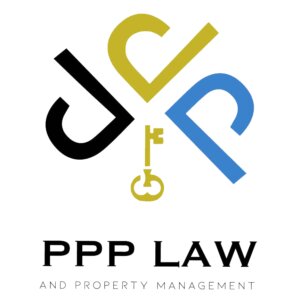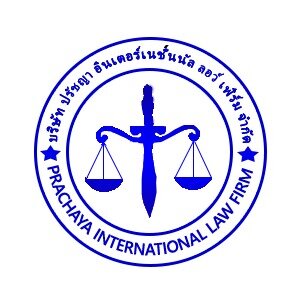Best Foreclosure Lawyers in Huai Khwang
Share your needs with us, get contacted by law firms.
Free. Takes 2 min.
Free Guide to Hiring a Real Estate Lawyer
List of the best lawyers in Huai Khwang, Thailand
About Foreclosure Law in Huai Khwang, Thailand
Foreclosure in Huai Khwang, a central district of Bangkok, Thailand, is the legal process through which a lender seeks to recover the amount owed on a defaulted loan by selling or taking ownership of the property used as collateral. Thai foreclosure law follows specific procedures, and the process is generally overseen by the courts. The rules are designed to balance the interests of both creditors, such as banks and financial institutions, and debtors, who may be homeowners or business property owners. Understanding these laws is crucial, as navigating a foreclosure can have significant financial and personal consequences.
Why You May Need a Lawyer
Engaging a lawyer during a foreclosure process is highly recommended for several reasons. Common situations where legal assistance is essential include:
- Receiving a notice of default or foreclosure from a lender and not understanding your rights or obligations.
- Suspecting that proper legal procedures have not been followed by the lender.
- Wanting to negotiate with the lender for possible loan restructuring or settlement.
- Desiring to challenge the validity of the foreclosure in court.
- Needing help to understand the court proceedings and required documentation.
- Selling or transferring property during or after the foreclosure process.
- Ensuring compliance with local and national legislation regarding foreclosure and property rights.
Local Laws Overview
Foreclosure in Huai Khwang, and generally across Thailand, is governed by the Civil and Commercial Code and local court procedures. Important aspects include:
- The lender must follow a judicial process, meaning foreclosures must go through the courts.
- The debtor is typically given notice and an opportunity to respond before foreclosure proceeds.
- Properties subject to foreclosure can be sold at public auction under court supervision.
- Proceeds from the sale are used to pay the lender, with any balance returned to the debtor.
- The right to redeem the property may exist before the court officially certifies the sale.
- Both foreign and Thai nationals are subject to the same foreclosure rules but may face additional considerations regarding foreign property ownership laws.
Strict procedural requirements apply to notices, timelines, and documentation. Missteps can result in delays or legal liabilities. Local legal counsel in Huai Khwang can guide individuals and businesses to ensure compliance with all legal formalities.
Frequently Asked Questions
What is the foreclosure process in Huai Khwang, Thailand?
The foreclosure process typically starts with a notice of default, followed by court proceedings if the debt is not settled. If the court orders foreclosure, the property is auctioned publicly, and proceeds are used to settle the debt.
Can I stop a foreclosure once it has started?
You may stop foreclosure by repaying the outstanding debt, negotiating a settlement with the lender, or raising a legal defense in court. Timely action is crucial.
How long does a foreclosure take in Huai Khwang?
The timeline varies depending on court schedules and responsiveness of the parties involved. It can take several months from the initial notice to the final sale at auction.
Do I have the right to remain in the property during the foreclosure process?
Debtors typically have the right to remain in the property until the court has finalized the foreclosure and the property has been transferred to a new owner.
What happens to any excess money from a foreclosure sale?
If the auctioned property sells for more than the outstanding debt, the surplus is returned to the debtor after deducting any legal and auction fees.
Will a foreclosure affect my ability to buy property in the future?
A foreclosure can impact your creditworthiness and your ability to obtain future loans. However, it does not legally prohibit you from buying property in the future.
Can a lender foreclose without going to court?
No, all foreclosures in Thailand, including Huai Khwang, are judicial and require a court order.
Do foreigners have the same foreclosure rights and obligations?
Yes, both Thai and foreign property owners are subject to the same foreclosure laws, though foreign ownership is regulated separately under Thai law.
What can I do if I believe the foreclosure is unjustified?
You can contest the foreclosure in court, arguing improper procedures or disputing the debt. Legal assistance is essential for building an effective defense.
Is it possible to negotiate with my lender before foreclosure?
Yes, many lenders are open to settlements, payment plans, or debt restructuring to avoid foreclosure. Negotiations are more effective with legal representation.
Additional Resources
Here are some helpful resources for individuals dealing with foreclosure in Huai Khwang, Thailand:
- Bangkok Civil Court in Ratchadaphisek - the main judicial authority for foreclosure cases
- Legal Aid Center for Debtors, Ministry of Justice
- Department of Legal Execution, which manages foreclosure auctions
- Thai Bar Association for qualified legal advisors
- Banks and financial institutions' in-house legal departments
Next Steps
If you are facing a foreclosure or need legal guidance regarding property issues in Huai Khwang:
- Gather all relevant documents, including loan agreements, notices, and court papers.
- Contact a qualified lawyer experienced in Thai foreclosure law as soon as possible.
- Attend all scheduled meetings, court hearings, and submit required documents promptly.
- Explore options for negotiation or settlement with the lender before the case goes to court if possible.
- Stay informed about court dates and procedures to protect your rights.
Taking these steps early can help you understand your options, protect your interests, and navigate the foreclosure process with greater confidence.
Lawzana helps you find the best lawyers and law firms in Huai Khwang through a curated and pre-screened list of qualified legal professionals. Our platform offers rankings and detailed profiles of attorneys and law firms, allowing you to compare based on practice areas, including Foreclosure, experience, and client feedback.
Each profile includes a description of the firm's areas of practice, client reviews, team members and partners, year of establishment, spoken languages, office locations, contact information, social media presence, and any published articles or resources. Most firms on our platform speak English and are experienced in both local and international legal matters.
Get a quote from top-rated law firms in Huai Khwang, Thailand — quickly, securely, and without unnecessary hassle.
Disclaimer:
The information provided on this page is for general informational purposes only and does not constitute legal advice. While we strive to ensure the accuracy and relevance of the content, legal information may change over time, and interpretations of the law can vary. You should always consult with a qualified legal professional for advice specific to your situation.
We disclaim all liability for actions taken or not taken based on the content of this page. If you believe any information is incorrect or outdated, please contact us, and we will review and update it where appropriate.










